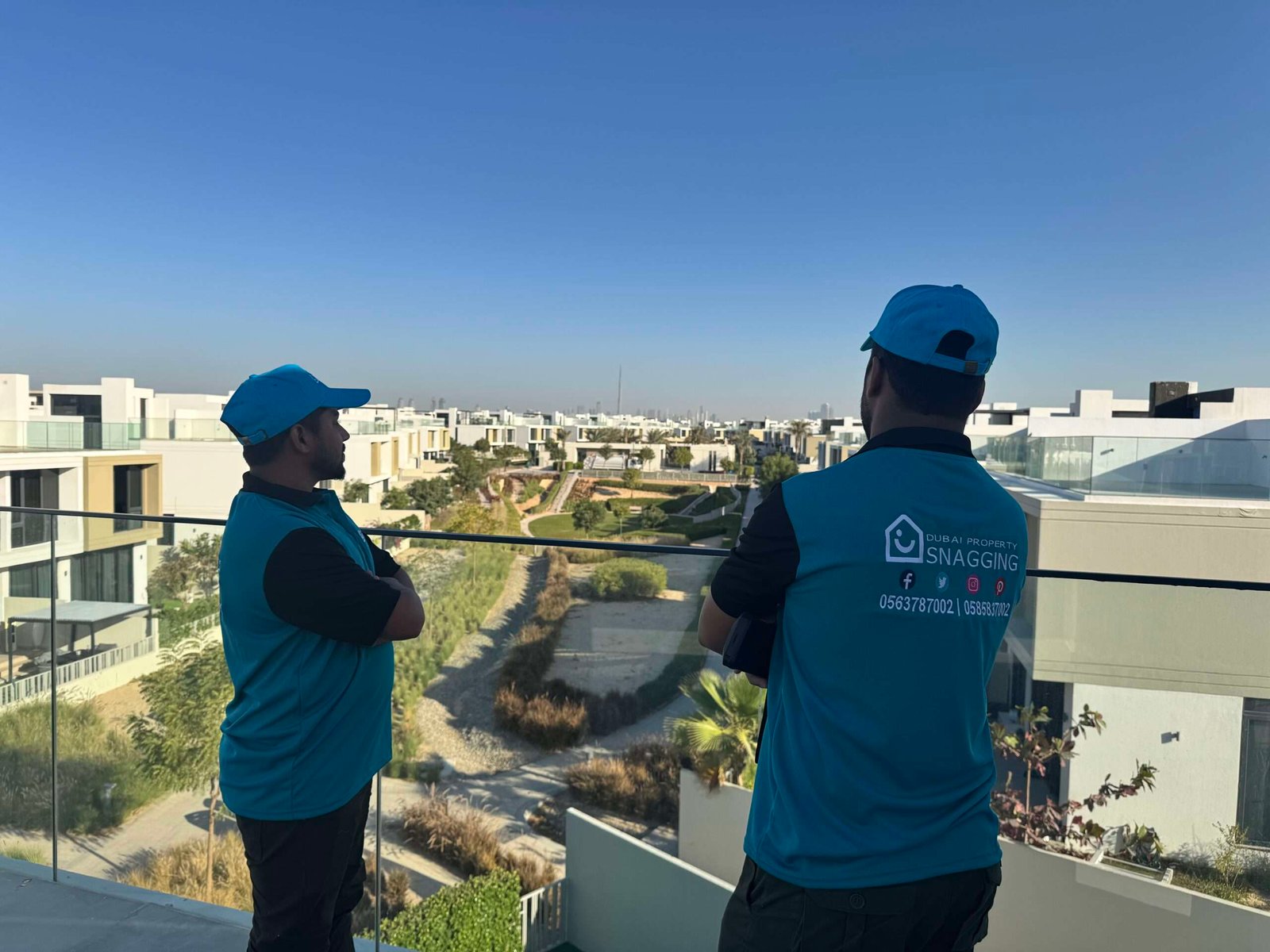Dubai Property Blog: Snagging Tips & Advice
Purchasing a new property is an exciting milestone, but it’s important to ensure that your investment is in perfect condition. In Dubai, the process of snagging—also known as a snagging inspection—is a vital step to identify any defects or issues before you take possession of your property. This ensures that the developer has completed the property to the highest standards. Here’s your guide to snagging, with expert tips and advice to help you get the most out of this critical phase.
What is Snagging?
Snagging refers to the process of thoroughly inspecting a new property for any faults, defects, or incomplete work. This usually takes place before you take possession of the property, but it’s also a practice that can occur after moving in, especially if issues are discovered later. The purpose of snagging is to identify any problems that need to be fixed by the developer before you accept the property as finished.
Why is Snagging Important in Dubai?
Dubai’s real estate market is vibrant and growing, but like any large-scale construction project, defects can occur—whether from poor workmanship, subpar materials, or general wear and tear during construction. Conducting a snagging inspection ensures that you don’t end up paying for these issues yourself, and helps you avoid future headaches once you’ve moved in.
Additionally, Dubai’s real estate laws often offer buyers protection, especially through the Defect Liability Period (DLP), which covers repairs for defects in construction for up to two years. Snagging allows you to address any problems well before the DLP expires, ensuring the developer is held accountable for the work completed.
Snagging Tips for Dubai Homebuyers
- Do Your Research
Before even starting the snagging process, take time to understand the development and what’s included in the property. Look through the developer’s promotional materials, floor plans, and specifications to ensure that what you’re inspecting matches your expectations. Compare the finished product to the contract or design documents you received when you purchased the property.
- Inspect All Areas Thoroughly
A comprehensive snagging inspection should cover every inch of your property. Some areas to pay particular attention to include:
- Walls and Ceilings: Look for cracks, holes, or uneven surfaces that could indicate poor workmanship or settling.
- Doors and Windows: Ensure they open and close smoothly, seal properly, and that there are no visible gaps or scratches.
- Flooring and Tiling: Check for uneven tiles, missing grout, or damage to the flooring. Be especially mindful of water damage or any moisture spots.
- Plumbing and Electrical Fixtures: Test faucets, showers, and toilets for water flow. Check electrical outlets, light switches, and the circuit breaker.
- Kitchen and Bathroom Fixtures: Inspect the kitchen appliances, countertops, and bathroom fittings for defects, misalignment, or unfinished work.
- Air Conditioning & Ventilation: In a hot climate like Dubai, the air conditioning system is crucial. Test the cooling capacity and check for any leaks or poor airflow.
- Take Your Time
Snagging is not a process to rush through. Spend several hours or even a full day inspecting the property. Bring a checklist with you so that you don’t overlook anything. It’s often helpful to take a friend or family member with you to provide a second set of eyes.
- Document Everything
Keep detailed records of every issue you spot, and take plenty of photos. This documentation will be essential when you report problems to the developer. A picture is worth a thousand words, and it can help avoid disputes over the extent of the issues or whether they were present before the handover.
- Use a Professional Snagging Inspector
If you’re unsure about your ability to spot issues, consider hiring a professional snagging inspector. These experts are trained to identify even the most subtle defects that you might miss. Professional inspectors also know exactly how to report defects in a way that ensures the developer addresses them properly.
- Don’t Just Look for Major Defects
While you should certainly look for structural issues, don’t neglect smaller cosmetic defects, such as chipped paint, scuffed floors, or unfinished work. These minor flaws can add up and, if left unaddressed, can make the home feel less polished and reduce its value.
- Test the Systems
Dubai’s extreme weather conditions make it essential that your property’s systems are fully functional. Check the HVAC, plumbing, electrical, and safety systems. In particular:
- HVAC systems: Check that air conditioning units are cooling effectively and that thermostats work correctly.
- Water Supply: Turn on all faucets, showers, and flush all toilets. Make sure there’s adequate water pressure, and check for leaks.
- Electrical Systems: Test all lights, fans, and appliances to ensure the electrical wiring is working properly.
- Check the Exterior
The exterior of the property is just as important as the interior. Look for issues such as improper drainage, damaged exterior walls, or areas that could lead to water leakage. Pay attention to the balcony, terrace, or garden areas for any visible faults.
- Follow Up Promptly
Once your snagging inspection is complete, notify the developer immediately with a detailed report of the defects you’ve found. Include all photos and documentation to back up your claims. The developer is legally obligated to fix issues within the warranty period, so don’t delay in reporting defects.
- Know Your Rights
Familiarize yourself with Dubai’s property laws and the developer’s warranty terms. If a developer fails to fix the issues within the stipulated time, you may be entitled to take legal action or seek compensation. Understanding your rights gives you the confidence to pursue any necessary repairs or claims.
Common Issues Found During Snagging in Dubai
- Cracks in Walls and Floors – Due to settling or poor workmanship, cracks may appear.
- Plumbing Issues – Leaks, slow drainage, or faulty fittings.
- Uneven Tiling or Flooring – Issues with installation can lead to unsightly gaps or uneven surfaces.
- Electrical Failures – Faulty outlets, incorrect installations, or broken light fixtures.
- Cosmetic Imperfections – Chipped paint, scratched windows, or damaged cabinetry.
Conclusion
Snagging is an essential part of purchasing a property in Dubai, ensuring that you receive a home that is safe, functional, and meets the standards promised by the developer. By conducting a thorough snagging inspection, documenting your findings, and following up with the developer, you can address any issues before moving in and make sure your property is in the best condition possible. If you’re unsure about the process, consider hiring a professional to ensure nothing is overlooked. Ultimately, snagging ensures that your new property truly feels like home from day one.



